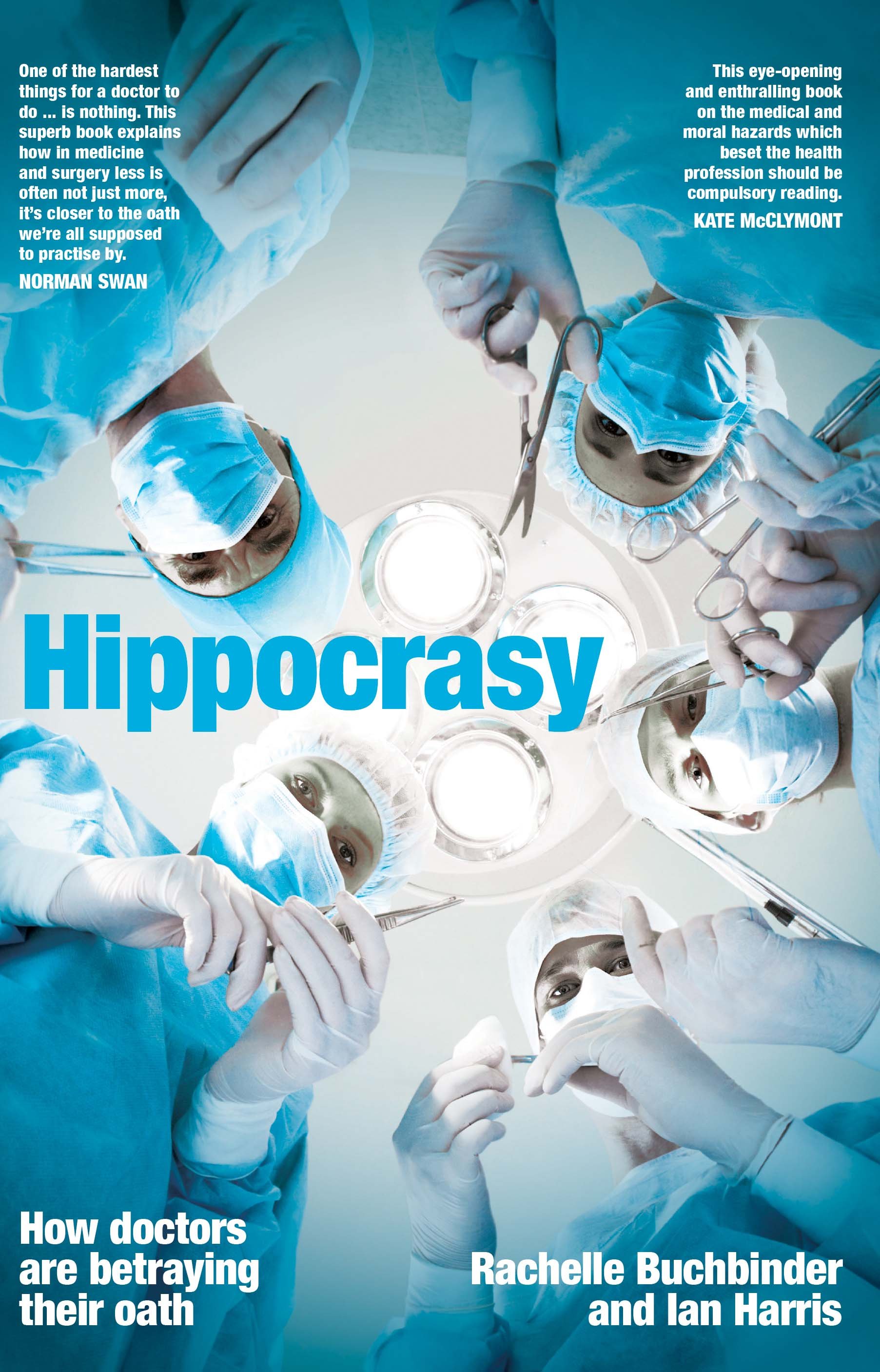What You Should Ask Your Doctor When They Suggest A Treatment
Breast screening doesn’t reduce deaths, beta blockers don’t reduce deaths, stenting arteries doesn’t reduce deaths and falls, not low bone density, are the cause of fractures. These aren’t claims from the loony fringe of medicine. They are evidence-backed statements by two Australian doctors. Rachelle Buchbinder and Ian Harris – a rheumatologist and an orthopaedic surgeon respectively – take these positions, and many more that may surprise readers, in their book Hippocrasy: How doctors are betraying their oath.
“Our experience as doctors and researchers have shown that much of medicine doesn’t do what it’s supposed to do: improve health,” they write.
Their concern is that business models have obscured the way medicine is practised. “Modern medical care is designed to maximise the number of encounters with the system [by way of] prescribing, operating, testing and scanning – all of which prioritises business over science.”
Of course, there are notable exceptions.
“Highly successful medical therapies, such as chemotherapy saves lives. Hip replacement and cataract surgery improve the quality of life for millions. But many other medical interventions, despite having proven ineffective and even harmful, remain in common use.”
Estimates show about one-third of medical care is of no value, while another 10 per cent is actually harmful.
Buchbinder and Harris say “many doctors continue to perform procedures and prescribe treatments known to be ineffective” despite there being widespread evidence to the contrary regarding certain treatments.
They want their book to empower patients, stop physicians inadvertently harming patients, reduce spending on unnecessary procedures and, in the process, help the planet.
Arthroscopy for dodgy knees?
The authors cite the example of arthroscopy, a surgical procedure used to treat knee pain attributed to wear and tear. It was first found to be ineffective almost 20 years ago, but its use only started waning about a decade ago, and in some places hasn’t declined at all. Another example, is one of the most common surgical procedures for shoulder pain called a “decompression”. Two studies now show that surgery for shoulder pain is no better than a placebo.
One of the reasons why these procedures continue to be done is that some conditions, including tennis elbow, low back pain and frozen shoulder, get better on their own without treatment. However patients and doctors will often attribute the improvement to the surgical intervention.
In the case of low back pain, a study looked at every single trial investigating treatments – such as medicines or physical treatments for acute low back pain – and tested them against placebo, no treatment, usual care or another treatment. The results showed it didn’t matter if the treatment was placebo, nothing, usual care or the specific treatment under study – all patients’ back complaints improved.
But it’s not just treatments that we need to be wary of. A review of breast screening mammography programs found that many women who undergo screening will be diagnosed unnecessarily. And women who were screened were more likely to be told they had cancer and more likely to undergo biopsy, surgery and radiation treatment. But their chances of dying were the same as those of the women who didn’t have screening mammography.
Despite these findings, the benefits and risks of mammography are hotly debated, although the benefits are not clear.
So, if modern medicine doesn’t always come up with right answer, who or what can?
The authors say that public health measures are more likely to deliver better health than treatments or technology.
“Life expectancy has roughly doubled, from around 40 to 80 years, since the mid-1800s,” they write. “It’s well established that this improvement has been largely due to public health measures, such as clean water and sanitation, and social changes in areas such as education, welfare, housing, and regulations concerning work safety, and air and food quality.”
They also point to smoking-reduction campaigns that have had a significant effect on lowering deaths and suggest a similar public awareness program about the evils of junk food, using a mix of education and taxes on soft drinks, could reduce the rates of obesity across the world.
Questions to ask your doctor
Buchbinder and Harris say that patients shouldn’t blindly do what doctors suggest. Below are the questions they suggest you ask before agreeing to any treatment.
Has this treatment been proven to work in high-quality studies?
What were the actual results?
What alternatives are there?
What would happen if I did nothing?
Do I really need this test, treatment or procedure? (that is, what are the possible benefits?)
What are the risks? (that is, what are the possible harms?)
Are the benefits worth the risks?
Are there simpler, safer options?
What are the costs?
Doing less is not just good for patients. It has been estimated that about 7 per cent of Australia’s total carbon footprint is due to health care. Half comes from hospitals and another 20 per cent from pharmaceuticals. So by reducing the amount of testing and treatments by avoiding unnecessary interventions we are also helping the environment.
Where to find good information
If you want to do your own research, the authors recommend consulting the Cochrane Library, an international organisation and UK registered charity. Established in 1993, it has more than 80,000 contributors worldwide, mostly volunteers, based across 120 countries. It’s not for profit and accepts no commercial funding. There are more than 50 review groups, each based around a field of medicine.
Hippocrasy by Rachelle Buchbinder and Ian Harris is published by NewSouth, $32.99.


